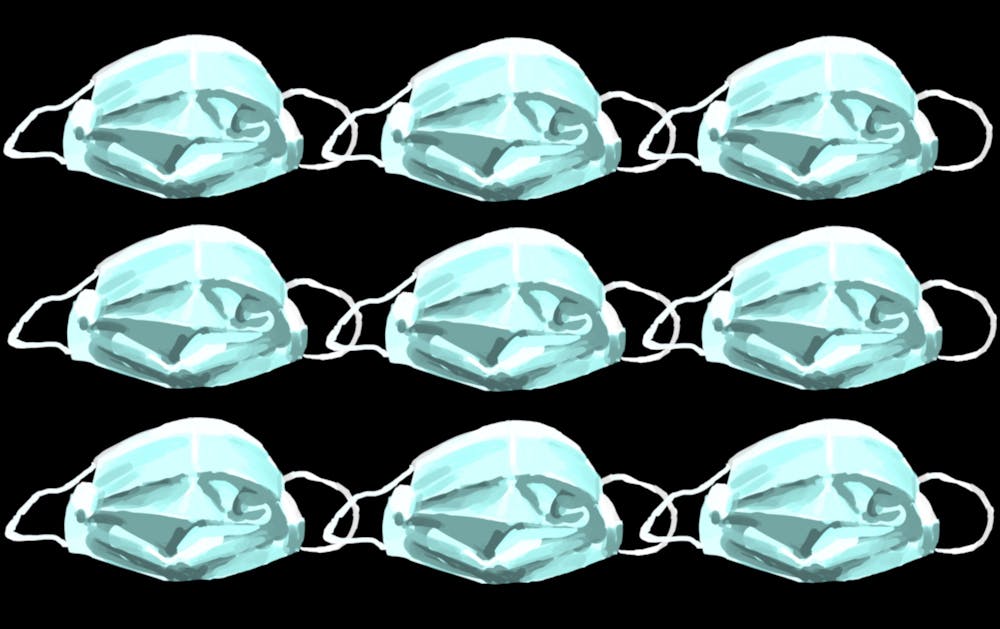Active cases of the coronavirus rose by 118 within the ASU community since Thursday, according to a Monday update.
There are now 288 active cases within the ASU community. Active cases among students are at 252, an increase of 108 infections since Thursday’s update. Employee active cases are now 36, a 10-case increase.
Arizona’s Rt number — representing the average number of people who become infected by another person — has risen to 1.18. According to data from the Biodesign Critical COVID-19 testing page, the 7-day average positive test rate has risen to 13.57% in Arizona.
ASU has reported 2,508 cumulative cases within its community since Aug. 1. Students make up 2,420 of those cumulative cases, and employees make up 88. Cumulative cases increased by 205 since Thursday when the University reported there had been 2,303 cumulative cases.
The Arizona Department of Health Services reported on Monday 435 new cases of the coronavirus, a much lower number than what the state has seen the past week.
With cases rising throughout the state and in the ASU community, University officials are asking students and employees to remain vigilant in the coming weeks as the state experiences another “surge” of COVID-19 cases.
On Saturday, Provost Mark Searle and Treasurer and Chief Financial Officer Morgan Olsen said in an email students should “continue to follow all public health protocols to slow the spread” going forward.
They wrote the University’s data indicates spread does not come from classrooms, “rather, it stems from social interactions where people do not follow public health protocols.”
There are 167 active cases among students off campus in the metropolitan Phoenix area, and 77 students are in isolation on the Tempe campus. The remaining eight cases are on the Downtown Phoenix, West or Polytechnic campuses.
The University has collected approximately 115,169 tests from students and employees since Aug. 1. According to the update, it has tested 75% of on-campus students and 37% of off-campus students.
The ASU community's percent positivity rate is roughly 2.1%, using the cumulative number of positive results as the numerator and the total number of tests collected as the denominator. The percent positivity rate represents the level of transmission of the virus and shows if the testing is effective.
Random test results from Oct. 31 to Nov. 7 show 14 on-campus students tested positive, resulting in a positivity rate of 2.03%. Off-campus students who were selected for random testing returned 48 positives, resulting in a positivity rate of 2.76%. One employee tested positive through random testing during that period, resulting in a positivity rate of 0.14%
Internal tracking of ADHS ZIP code data of the ZIP codes with ASU campuses — 85281, 85004, 85306 and 85212 along with the 85282 ZIP code in Tempe — done by The State Press shows cumulative cases have increased by 229 since Thursday. Last week, cases among all five ZIP codes combined rose by 170 from Monday to Thursday.
The biggest growth in cases since Thursday occurred in the two Tempe ZIP codes, with 112 new cases being reported in 85281 and 53 new cases in 85282. The 85212 ZIP code, where the Polytechnic campus is located, reported 40 new cases. Both 85004 and 85306 ZIP codes reported 12 new cases.
From Nov. 10-16, the Biodesign Institute in partnership with ADHS will be providing free saliva-based COVID-19 testing across the state.
The New York Times reported Monday Pfizer, a pharmaceutical company, created a vaccine that had been 90% effective in its trial.
Later this month, Pfizer plans to ask the Food and Drug Administration for emergency authorization to begin distribution. The New York Times reported Pfizer is likely to have 15-20 million doses manufactured by the end of the year.
According to a report from the Centers for Disease Controls and Prevention released on Oct. 29, “early in the COVID-19 Vaccination Program, there may be a limited supply of COVID-19 vaccine, and vaccination efforts may focus on those critical to the response, providing direct care, and maintaining societal function, as well as those at highest risk for developing severe illness from COVID-19.”
Many ASU students will likely not be a part of that group to receive a vaccine before the spring semester and “will hopefully be the lowest priority,” said Will Humble, the executive director of the Arizona Public Health Association, in an interview before Pfizer’s announcement.
“There is no doubt (students) amplify it a lot. That's true. But you're also the lowest risk of complications,” beyond some students who may have underlying conditions, Humble said.
Assuming the vaccine is effective and can be distributed among a large portion of the Arizona population, ASU could then consider increasing its class sizes and in-person activities despite many students not being vaccinated, Humble said.
Reach the reporter at wmyskow@asu.edu and follow @wmyskow on Twitter.
Like The State Press on Facebook and follow @statepress on Twitter.

Wyatt Myskow is the project manager at The State Press, where he oversees enterprise stories for the publication. He also works at The Arizona Republic, where he covers the cities of Peoria and Surprise.




